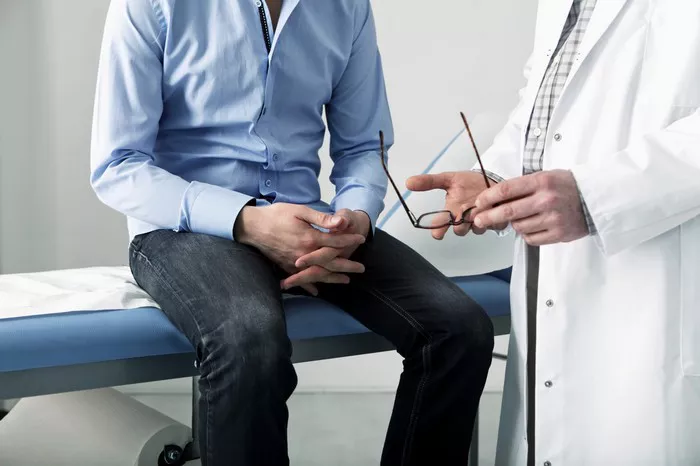Varicocele surgery is a common treatment for men who have varicoceles, a condition where the veins in the scrotum become enlarged and twisted. This condition can lead to discomfort, swelling, and infertility issues. For men experiencing significant pain or fertility concerns due to varicocele, surgery can be an effective solution. However, one of the most frequently asked questions about the procedure is, “Does varicocele surgery hurt?” In this article, we will explore the pain associated with varicocele surgery, what patients can expect during and after the procedure, and how to manage any discomfort.
Understanding Varicocele
Before diving into the specifics of the surgery, it is essential to understand varicocele and its potential impact on health. A varicocele occurs when the veins in the scrotum become enlarged, leading to blood pooling in the veins. This condition is relatively common, affecting about 15 percent of men, particularly those between the ages of 15 and 25. Varicoceles are often associated with symptoms such as pain, swelling, and even infertility.
The pain caused by varicocele may worsen after prolonged standing or physical activity, while it may also cause a dull ache or heaviness in the scrotal area. In some cases, varicoceles are asymptomatic and do not cause any pain or noticeable symptoms. However, when the condition leads to significant discomfort or infertility, surgery may be recommended.
Types of Varicocele Surgery
There are several surgical options available for treating varicocele, with each option designed to address the condition while minimizing discomfort and complications. The main types of varicocele surgery include:
Open Surgery
Open surgery, also known as the inguinal approach, is the most traditional method for treating varicocele. In this procedure, a small incision is made in the groin area, and the surgeon removes or ties off the affected veins to prevent blood flow. This type of surgery is generally performed under general anesthesia, meaning the patient will be asleep and pain-free during the procedure.
Laparoscopic Surgery
Laparoscopic surgery is a minimally invasive technique that uses small incisions and a camera to guide the surgeon as they remove or tie off the varicocele veins. Laparoscopic surgery is often preferred for its faster recovery time and reduced risk of complications compared to open surgery.
Microsurgical Varicocelectomy
Microsurgical varicocelectomy is considered the most precise form of varicocele surgery. During this procedure, the surgeon uses a microscope to view the veins in the scrotum and selectively ligate (tie off) the affected veins. This technique minimizes damage to surrounding tissue and has a lower risk of complications, such as fluid accumulation or scarring.
Does Varicocele Surgery Hurt?
The question of whether varicocele surgery hurts depends on several factors, including the type of surgery, the use of anesthesia, and individual pain tolerance. In general, varicocele surgery is well-tolerated, and most patients experience only mild discomfort after the procedure. Let’s take a closer look at the pain levels associated with the surgery.
Anesthesia: A Key Factor
One of the reasons why varicocele surgery is not typically painful during the procedure itself is because of the anesthesia. Most varicocele surgeries, including open surgery and laparoscopic surgery, are performed under general anesthesia. This means that the patient is unconscious and does not feel any pain during the operation.
In some cases, local anesthesia may be used for minimally invasive procedures, such as a varicocelectomy. Local anesthesia numbs only the area being treated, allowing the patient to remain awake but without feeling pain. However, the vast majority of patients undergoing varicocele surgery will not experience pain during the procedure due to the anesthesia.
Pain After Surgery
While anesthesia ensures that there is no pain during the surgery itself, some discomfort may arise after the procedure as the anesthesia wears off. This post-surgical pain is generally mild and can be managed with pain medications prescribed by the doctor. Most patients experience some soreness, swelling, or tenderness in the scrotal area following the surgery. The pain is typically described as a dull ache or pressure, which can be controlled with over-the-counter pain relievers or prescribed medications.
Recovery Time and Pain Management
The recovery process after varicocele surgery varies depending on the type of procedure performed and the individual’s overall health. For most patients, the initial pain subsides within a few days. However, it may take several weeks to fully recover. The pain during recovery is usually manageable with medication and rest.
After surgery, it is important to follow the doctor’s post-operative instructions to ensure proper healing and minimize discomfort. This may include taking pain medications, applying ice to reduce swelling, and avoiding strenuous activities for a period of time.
Laparoscopic and Microsurgical Approaches: Less Pain
Patients who undergo laparoscopic surgery or microsurgical varicocelectomy typically experience less pain and a quicker recovery time compared to those who undergo open surgery. These minimally invasive approaches involve smaller incisions and less tissue manipulation, which helps reduce post-surgical pain and swelling.
In addition, microsurgical techniques, which use a microscope to precisely identify and ligate the affected veins, tend to cause less trauma to surrounding tissue, leading to less pain and a lower risk of complications such as hydrocele (fluid buildup).
Pain and Complications
While pain after varicocele surgery is generally mild, complications can occasionally arise. In rare cases, patients may experience more intense pain due to issues such as infection, bleeding, or nerve damage. If the pain becomes severe, persistent, or worsens over time, it is important to contact the healthcare provider for further evaluation.
Infections, while uncommon, can lead to increased pain, swelling, and redness at the incision site. If an infection is suspected, the doctor may prescribe antibiotics or take other measures to address the issue. Bleeding is another potential complication, but it is generally minor and resolves on its own. In some cases, if bleeding is more significant, the doctor may need to drain the area.
How to Minimize Pain After Surgery
To reduce pain and discomfort following varicocele surgery, patients can take several steps:
Follow Post-Operative Instructions: The doctor will provide specific instructions on how to care for the surgical site, manage pain, and avoid complications. It is important to follow these guidelines to ensure proper healing.
Take Pain Medications: Pain medications, either over-the-counter or prescription, can help alleviate post-surgical pain and discomfort. Be sure to take them as directed.
Apply Ice: Applying ice packs to the affected area can help reduce swelling and provide relief from pain.
Rest and Avoid Strenuous Activity: Rest is essential for recovery. Avoid lifting heavy objects or engaging in intense physical activities for several weeks after surgery.
Wear Supportive Garments: A scrotal support or jockstrap may be recommended to reduce discomfort and support the scrotum during recovery.
Conclusion
Varicocele surgery is generally not painful during the procedure due to the use of anesthesia. After the surgery, most patients experience mild discomfort, which can be managed with pain medication and other measures. While there may be some swelling or tenderness in the scrotal area, the pain is usually short-lived, and recovery is typically quick.
Patients undergoing laparoscopic or microsurgical varicocelectomy tend to experience less pain and a faster recovery compared to those undergoing open surgery. As with any surgical procedure, complications can arise, but they are rare. Following post-operative care instructions and taking appropriate pain management steps will help ensure a smooth recovery process.
If you are considering varicocele surgery, it is essential to consult with a qualified healthcare provider to discuss the best treatment option for your condition and to address any concerns you may have regarding pain or recovery.
Related topics:
Can I Go to the Gym After Varicocele Surgery?



















